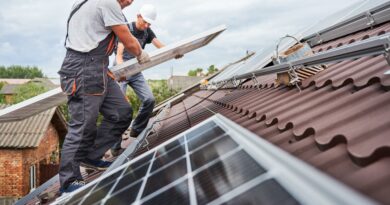Electric Vehicle Charging tariffs in the UK have become a focal point for individuals and businesses as the government’s commitment to phasing out petrol and diesel vehicles by 2030 edges closer.
Understanding EV Charging tariffs and how they can save money on fuel is crucial for prospective and current EV owners and, in many cases, can make owning an EV affordable and sustainable. Range anxiety and fuel costs are many peoples’ initial worries when transferring to an EV. The concern of electricity prices rising and that being the only way to charge a vehicle is daunting to some. But, as the UK gets to grips more and more with EV ownership, specific EV Charging tariffs are rising.
Electricity plans tailored for electric vehicle owners offer discounted rates for charging during off-peak hours, typically overnight when electricity demand is lower. By shifting their charging to these times, EV owners can take advantage of lower electricity prices, reducing their overall fuel costs – a highly sought-after price cut as people are anxious about the cost of EV charging.
One of the most popular types of EV Charing tariffs in the UK is time-of-use tariffs. These charging tariffs divide the day into different periods, with cheaper rates during off-peak hours and higher rates during peak times. For EV owners, this means they can charge their vehicles overnight at a significantly lower cost compared to charging during peak periods such as throughout the working day.
Many of the leading energy companies in the UK now offer specific EV Charing tariffs. Companies like Octopus Energy, EDF Energy and OVO Energy provide EV Charging tariffs with competitive rates and additional benefits such as discounted off-peak and free or discounted home charging installations.
Octopus Energy, for example, offers the Octopus Intelligent Go tariff, specifically designed for EV owners. It claims to cut EV charging costs by up to 70%. With Octopus Intelligent Go, customers benefit from a low electricity rate during off-peak hours. When hooked up, it will automatically charge your car when it’s cheapest, allowing users to get super low smart charging rates.
EDF Energy’s GoElectric Overnight tariff on the same theme offers discounted off-peak rates overnight.
Other companies have gone further with OVO Energy’s Charge Anytime, which lets EV owners smart charge at a lower rate of 7p per kWh at any time, day or night. It also offers an override of your wise charging schedule with a Charge Now function, where you can charge faster and opt to be charged a standard home electricity rate.
We have also seen some movement where energy companies collaborate with charger companies to offer better deals. British Gas recently launched an EV charger installation deal with Hive. With this, British Gas will install a Hive EV Charger, and users can benefit from charging with its Hive SmartCharge tariff. British Gas also offers a charging tariff to other EV charger users. It can fix energy prices with its Electric Driver tariff and get cheap off-peak electricity at just 8.95p per kWh between 00:0 and 05:00.
As we step closer to 2030, more government incentives and grants are becoming available to support the adoption of electric vehicles and also encourage the use of EV Charging tariffs. For example, The Electric Vehicle Homecharge Scheme (EVHS) provides grants to cover a portion of the cost of installing a home charging point, making it more affordable for EV owners to charge at home.
Having grants to subsidise the costs of getting started with an electric vehicle and the rise of EV Charging tariffs becoming available is a hugely positive step into the world of EV adaptation. Making the at-home charging infrastructure more accessible is a huge part of what we do at evec, and multiple EV Charging tariffs offering more choices and benefits to EV owners provide a huge incentive to switch to an EV.
As we see further expansion of EV Charging tariffs and more energy providers adopting specific EV rates and benefits, choosing the right tariff for an EV owner will not only lower fuel costs but also make it easier to contribute to a cleaner, greener future.






